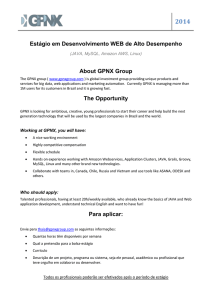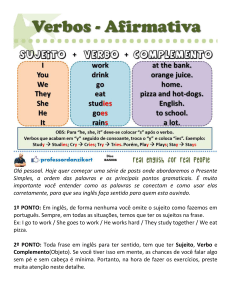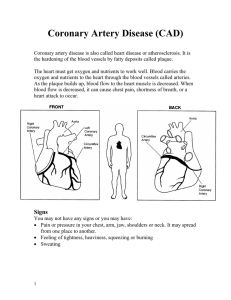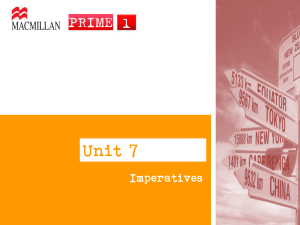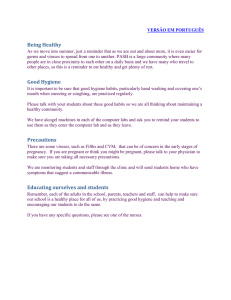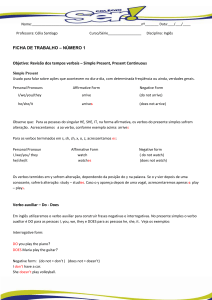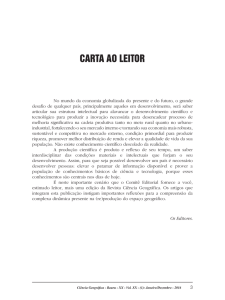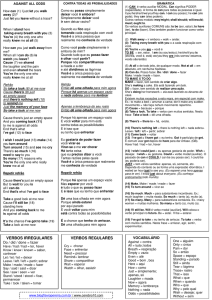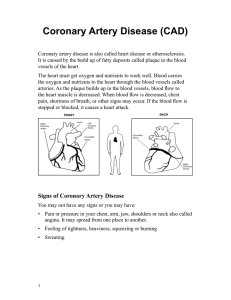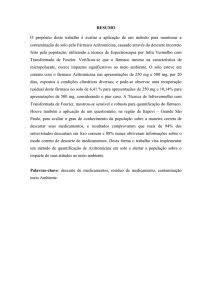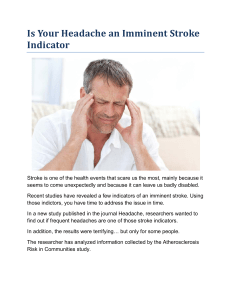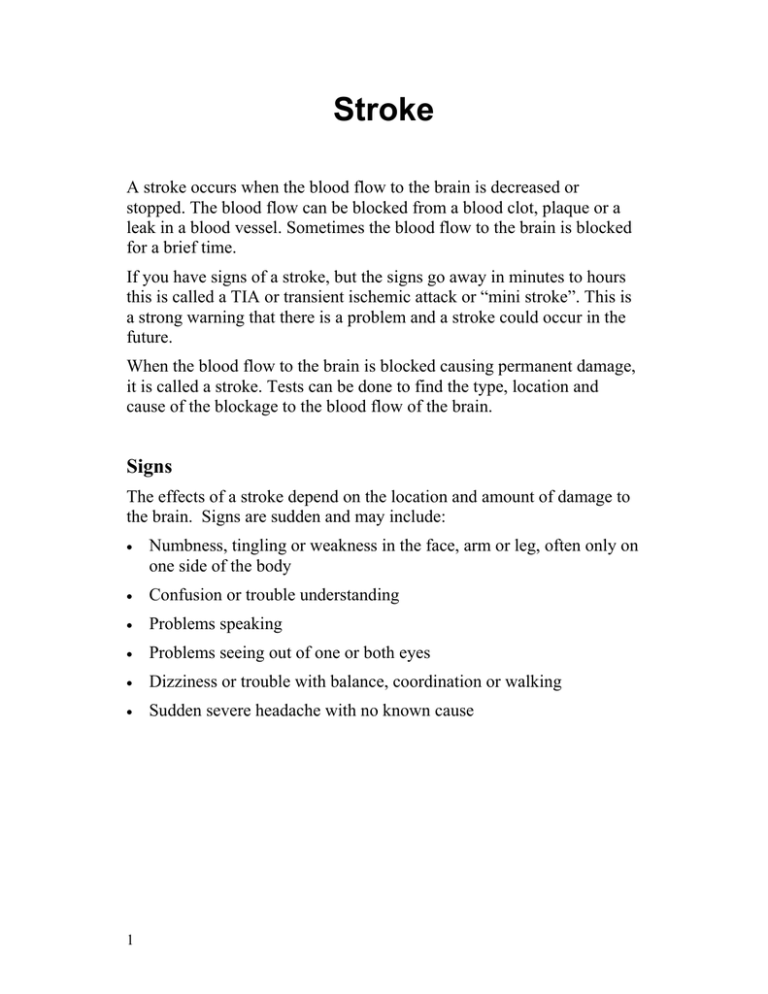
Stroke
A stroke occurs when the blood flow to the brain is decreased or
stopped. The blood flow can be blocked from a blood clot, plaque or a
leak in a blood vessel. Sometimes the blood flow to the brain is blocked
for a brief time.
If you have signs of a stroke, but the signs go away in minutes to hours
this is called a TIA or transient ischemic attack or “mini stroke”. This is
a strong warning that there is a problem and a stroke could occur in the
future.
When the blood flow to the brain is blocked causing permanent damage,
it is called a stroke. Tests can be done to find the type, location and
cause of the blockage to the blood flow of the brain.
Signs
The effects of a stroke depend on the location and amount of damage to
the brain. Signs are sudden and may include:
•
Numbness, tingling or weakness in the face, arm or leg, often only on
one side of the body
•
Confusion or trouble understanding
•
Problems speaking
•
Problems seeing out of one or both eyes
•
Dizziness or trouble with balance, coordination or walking
•
Sudden severe headache with no known cause
1
Derrame
O derrame ocorre quando o fluxo sanguíneo para o cérebro diminui ou é
interrompido. O fluxo sanguíneo pode ser interrompido devido a um
coágulo de sangue, a uma placa ou um vazamento em um vaso
sanguíneo. Algumas vezes, o fluxo de sangue para o cérebro é
interrompido por um período curto de tempo.
Se você tiver sinais de um derrame mas eles desaparecerem em poucos
minutos ou horas, isso é chamado de AIT ou ataque isquêmico
transitório ou ainda "mini-derrame". Esse é um aviso importante de que
existe um problema e um derrame pode ocorrer no futuro.
Quando o fluxo de sangue para o cérebro é obstruído causando danos
permanentes, chama-se de derrame. Exames podem ser feitos para
descobrir o tipo, a localização e a causa da obstrução do fluxo sanguíneo
para o cérebro.
Sinais
Os efeitos do derrame dependem da localização e da extensão dos danos
causados no cérebro. Os sinais são repentinos e podem incluir:
•
Dormência, formigamento ou fraqueza na face, no braço ou na perna,
geralmente somente em um lado do corpo
•
Confusão ou dificuldade de compreensão
•
Dificuldade para falar
•
Dificuldade de enxergar com um ou com os dois olhos
•
Tontura ou problemas de equilíbrio, coordenação e para caminhar
•
Dor de cabeça súbita e forte sem causa conhecida
Stroke. Brazilian Portuguese.
1
Your Care
Call 911 as soon as you have any signs of a stroke. The goal of care is
to stop further damage to the brain. It is important to get to the hospital
right away.
Sometimes it takes a few days to see what type of damage has occurred.
It is hard to predict how you will recover from a stroke. Care is planned
based on your needs. It may include:
•
Therapy for rehabilitation
•
Exercise to strengthen your muscles
•
Adapting your activity to use the strong side of your body
•
Learning how to talk and communicate
•
Learning ways to eat and drink safely
Risk Factors
You are at risk for a stroke if you:
•
Have high blood pressure, diabetes, high blood cholesterol, heart
disease or a prior stroke
•
Are from a family where others have had a stroke
•
Are overweight
•
Are inactive or do not exercise
•
Have a lot of stress
•
Eat foods high in cholesterol and fat
•
Smoke or use tobacco
•
Drink too much alcohol
•
Use street drugs
•
Have a head injury or a bleeding disorder
2
Seu tratamento
Ligue para 911 imediatamente se você apresentar algum desses
sinais de derrame. O objetivo do seu tratamento é impedir maiores
danos no cérebro. É importante procurar atendimento em um hospital
imediatamente.
Às vezes é preciso alguns dias para ser possível avaliar a extensão dos
danos. É difícil prever como será a sua recuperação após um derrame. O
tratamento será planejado de acordo com as suas necessidades. O
tratamento pode consistir de:
•
Terapia de reabilitação
•
Exercícios para fortalecer os músculos
•
Adaptar suas atividades para que você use o lado forte do corpo
•
Aprender a falar e a se comunicar
•
Aprender maneiras de comer e beber com segurança
Fatores de risco
Você corre risco de ter um derrame se:
•
Tiver hipertensão, diabetes, colesterol alto, doença cardíaca ou já
tiver tido um derrame
•
Alguém de sua família tiver tido um derrame
•
Estiver acima do peso
•
For sedentário ou não fizer exercícios
•
For muito estressado
•
Consumir alimentos com alto teor de colesterol e gorduras
•
Fumar ou usar tabaco
•
Consumir bebidas alcoólicas em excesso
•
Usar drogas
•
Tiver sofrido uma lesão na cabeça ou tiver tido um distúrbio de
sangramento
Stroke. Brazilian Portuguese.
2
If you have any of these risk factors, talk to your doctor or nurse about
ways to manage them.
To Prevent a Stroke
•
Treat high blood pressure, diabetes, high cholesterol and heart disease
if present
•
Quit smoking
•
Exercise
•
Eat a healthy diet and lose weight if you are overweight
•
Limit alcohol to 1 to 2 drinks a day
•
Avoid falls and injuries
Talk to your doctor or nurse if you have any questions or concerns.
2005 – 9/2010 Health Information Translations
Unless otherwise stated, user may print or download information from www.healthinfotranslations.org for personal, non-commercial use only. The medical information
found on this website should not be used in place of a consultation with your doctor or other health care provider. You should always seek the advice of your doctor or
other qualified health care provider before you start or stop any treatment or with any questions you may have about a medical condition. The Ohio State University
Medical Center, Mount Carmel Health System, OhioHealth and Nationwide Children’s Hospital are not responsible for injuries or damages you may incur as a result of
your stopping medical treatment or your failure to obtain medical treatment.
3
Se você apresentar algum desses fatores de risco, converse com seu
médico ou enfermeira sobre maneiras de controlá-lo.
Como evitar um derrame
•
Trate os problemas que você tiver, como hipertensão, diabetes,
colesterol alto e doença cardíaca
•
Pare de fumar
•
Faça exercícios
•
Adote uma dieta saudável e perca peso, se você estiver acima do peso
•
Restrinja o consumo de álcool a 1 a 2 drinques por dia
•
Evite quedas e lesões
Converse com seu médico ou enfermeira em caso de dúvidas ou
preocupações.
2005 – 9/2010 Health Information Translations
Unless otherwise stated, user may print or download information from www.healthinfotranslations.org for personal, non-commercial use only. The medical information
found on this website should not be used in place of a consultation with your doctor or other health care provider. You should always seek the advice of your doctor or
other qualified health care provider before you start or stop any treatment or with any questions you may have about a medical condition. The Ohio State University
Medical Center, Mount Carmel Health System, OhioHealth and Nationwide Children’s Hospital are not responsible for injuries or damages you may incur as a result of
your stopping medical treatment or your failure to obtain medical treatment.
Stroke. Brazilian Portuguese.
3

